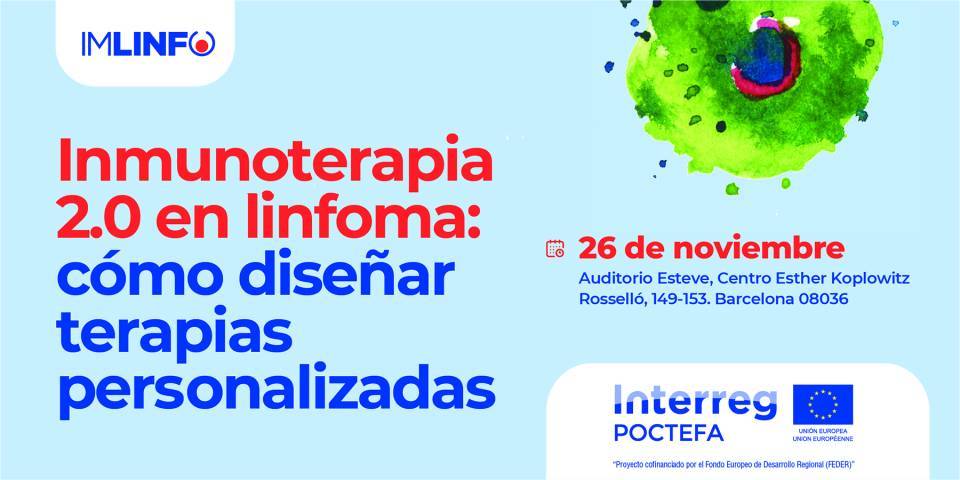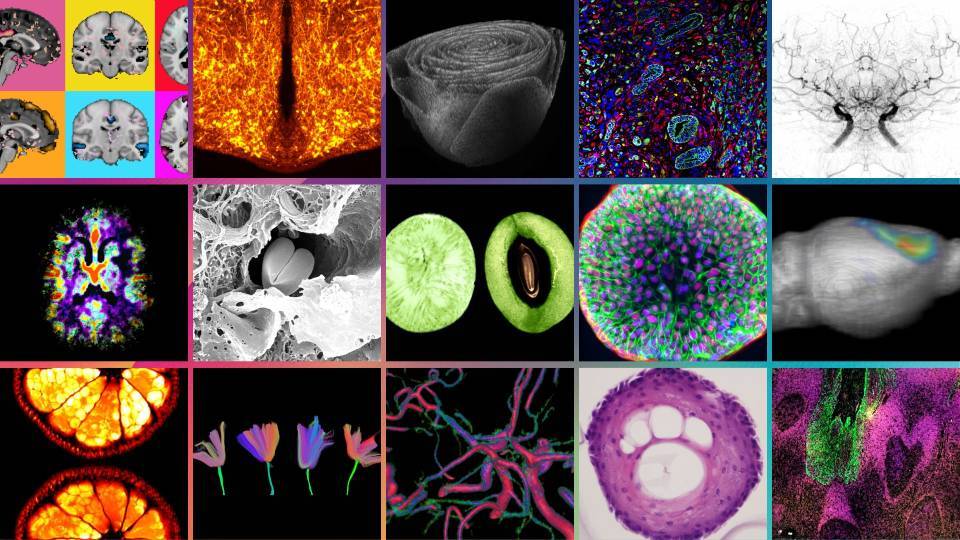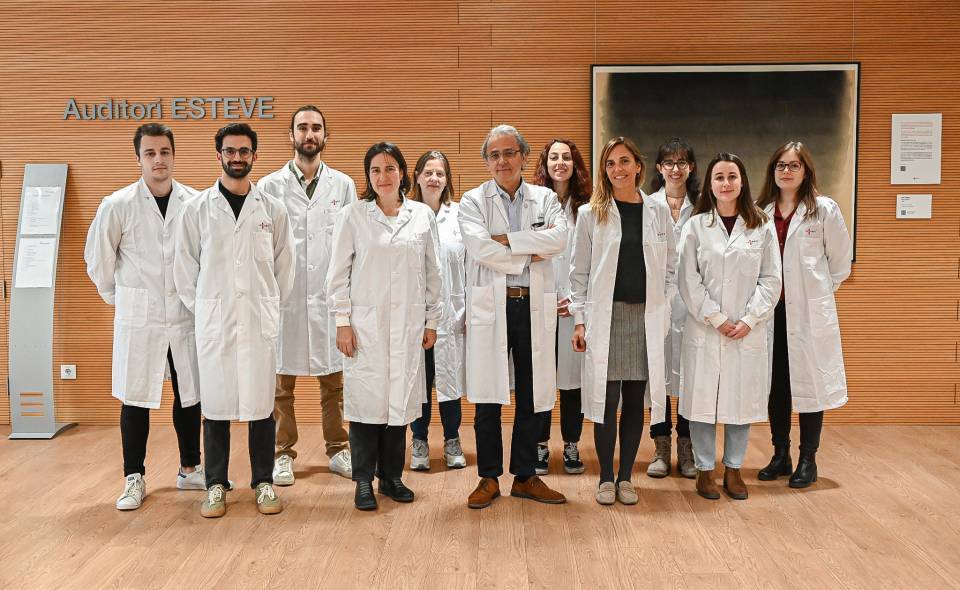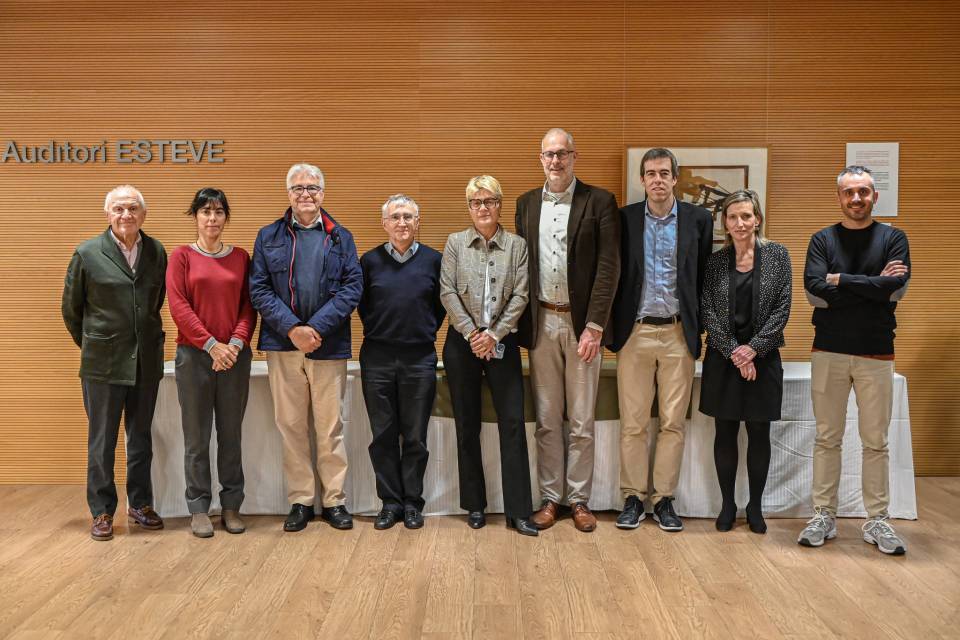The IMLINFO project began in 2018 as a cross-border network of personalized immunotherapies for non-Hodgkin lymphomas (NHL), with the goal of determining the efficacy of new immunotherapy treatments, through the creation of a repository of tumors and a platform of cultures with cells from patients in three dimensions. After four years of work, the results of the research were presented at the seminar “Immunotherapy 2.0 in lymphoma: how to design personalized therapies”, held on 26 November 2021.
NHL is a cancer of the lymphatic tissue, which is found in the lymph nodes, the spleen, and other organs of the immune system. Specifically, B-cell NHL, which is an object of the IMLINFO study, consists of abnormal growth of B lymphocytes in these tissues and organs. “We have established tumoroids from cells taken from patients with follicular lymphoma, mantle cell lymphoma, and chronic lymphocytic leukemia. These experimental models, which are among the classic two-dimensional cultures and in vivo tumors, have allowed us to identify vulnerabilities in the immune checkpoints and to design personalized therapies”, explained Patricia Pérez-Galán, coordinator of IMLINFO and head of the IDIBAPS group Microenvironment in lymphoma pathogenesis and therapy.
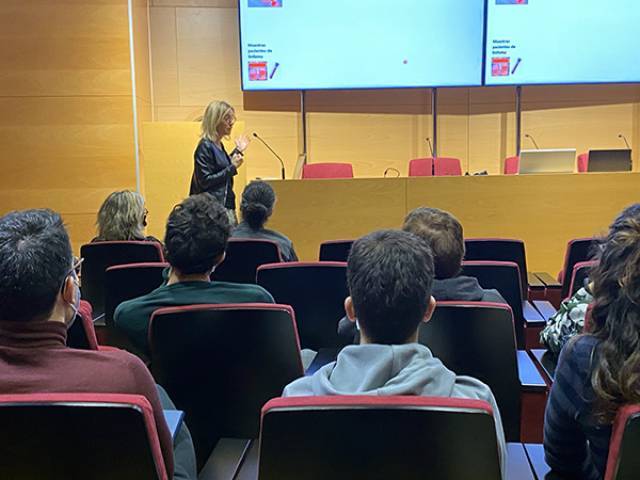
Patricia Pérez-Galán presents the results of the IMLINFO project.
Cross-border cooperation to fight against cancer
The IMLINFO project involves the participation of two Catalan hospitals, Hospital Clínic Barcelona, ICO-Girona, and a French Hospital, the Toulouse Hospital, which has provided the researchers with a larger sample of patients in both regions. Three IDIBAPS centers also form part of the consortium: the Girona Biomedical Research Institute (IGIBGI) and the Cancer Research Center of Toulouse (CRCT), where the tumoroids that recreate the microenvironment surrounding the tumor have been established. The technology company IMACTIV-3D has characterized these models using microscopy images and algorithms, while the pharmaceutical company Palobiofarma has contributed the therapeutic compounds.
“We have observed that each type of tumor expresses different immune checkpoint proteins. These molecules help to control the reaction of the immune system in order to prevent tissue damage, but sometimes, they also make it difficult to eliminate cancer cells”, says Pérez-Galán. “The effectiveness of the immunotherapy treatments varies according to the expression profile of the inhibitor proteins presented by each lymphoma. Our results make it possible to identify the best drug for each case, which leads us to personalized medicine”.
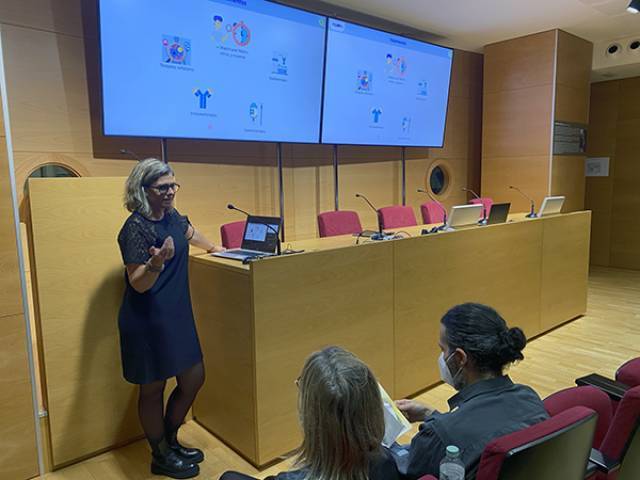
Christine Bezombes explains the different therapeutic strategies against lymphomas.
Of note is the fact that the project has been carried out without using laboratory animals. All the research has been conducted using cells from patients. “Nevertheless, we must remember that we are still talking about an experimentation model. Human, but still a model. This is why we are currently working to determine to what point our three-dimensional cultures mimic and reproduce the initial tumorous lymph nodes”, says Pérez-Galán.
IMLINFO has received funding from the 2nd call of the INTERREG V-A Spain-France-Andorra program (POCTEFA), a European regional cooperation program created to promote the sustainable cross-border region between the three countries.

